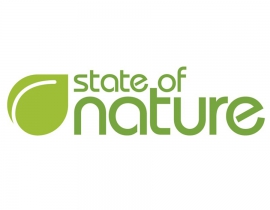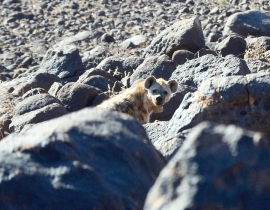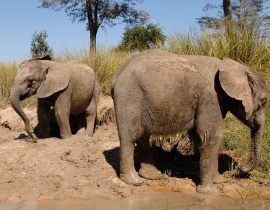Posted June 4, 2013 in All
The State of Nature Report brings together the work of multiple conservation and environmental organisations over a 50 year period. These organisations have joined forces to collate data on the health of species and habitats in the UK and its overseas territories. Unfortunately this report has shown a downward trend raising serious concerns for the future of our native wildlife. 60% of the 3148 assessed species have declined in the last 50 years and 31% of these have shown a strong reduction in population size. Climate change is a major factor effecting species decline and extinction. An increase in the average UK temperature has occurred over recent decades and although this is allowing some species to expand their ranges, it is having negative impacts on others.
Half of all the species assessed have displayed significant changes in their range and/or numbers supporting evidence that major environmental changes have occurred effecting UK ecosystems. Those species with specific habitat requirements or relationships have been the worst effected rather than generalist or opportunistic species. Conservation priority species included on the ‘Watchlist Indicator’ of birds, butterflies and moths, have decreased by 77% in the last 40 years and trends do not support a positive recovery rate. More than 1 in 10 of the 6,000 UK species assessed using current Red List criteria are now threatened by extinction. Data for the UK’s overseas territories, home to many internationally important species, also recorded negative results with 90% of species facing extinction.
The report also notes that prior to the 50 year recording-period large declines of several important UK species had already occurred due to habitat loss and land-use change. Furthermore, the report draws attention to the general lack of knowledge on UK wildlife, reliable data only being available for some 5% of the total number of species, with particular lack of records for marine ecosystems. Much of the existing data is only available due to the work of volunteer enthusiasts dedicating time and effort. This report has brought to light the state of nature in the UK and urges action through targeted conservation projects, environmental awareness, and public support and participation.
Colchester Zoo and Action for the Wild is working to support UK wildlife conservation with the creation and management of the nature area adjoining the zoo grounds to enhance visitor awareness of native species. Since its creation in early 2010 many new species have been recorded and work continues to monitor animal populations and breeding, improve the habitat, and encourage wildlife to the site. The Fisher’s estuarine moth introduction project has also been running since 2008; this conservation priority species is reared using permanent breeding enclosures and eggs have been introduced onto 20 newly created prime habitat sites in Essex to ensure the long-term survival of the population. For more information on this project and the many others supported globally by Action for the Wild please view our current projects list.



